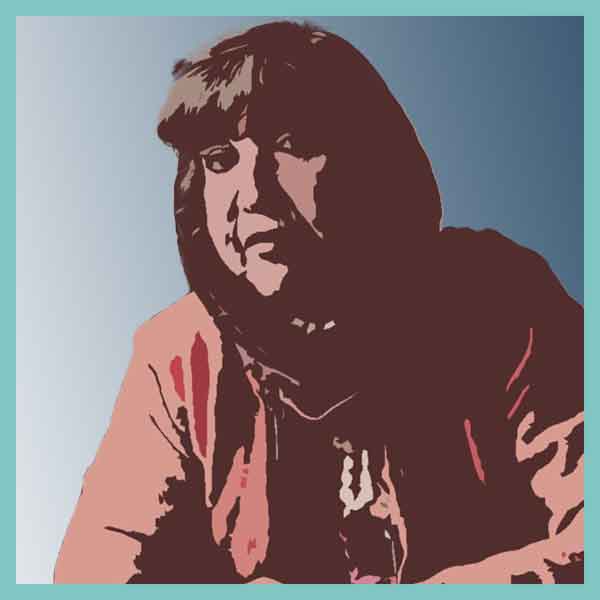Simin Behbahani

سیمینِ بِهبَهانی
(مُناسب برایِ فارسی آموزانِ سَطح C1)
بیست و هشتم تیر، نوزده ژوئیه، زادروزِ سیمین بِهبَهانی شاعر دوره ی مُعاصِر، نِویسَنده، مُعَلم و فَعّالِ حوزه ی حُقوقِ زنان است. سیمین بِهبَهانی در سال 1306 در تهران به دنیا آمد. شُروعِ فَعّالیّتِ اَدبیِ سیمین به دَهه ی 1320 بازمی گَردد. نُخُستین کِتاب او با نام «سه تارِ شِکَسته» در سال 1329 مُنتَشِر شد. پس از آن چاپ و انتِشارِ مجموعه غَزَل هایِ سیمین شهرت او را بیشتر کردند. سبکِ مُنحَصِر به فَرد سیمین در سُرودَنِ غَزَل موجب شده تا به عنوانِ «نیمای غَزَلِ مُعاصر» مَشهور شود. ویژگیِ شِعر و غَزَلِ سیمین پِیوندِ عَشق و اَجتماع و تَلاقیِ سَنَّت و نوگرایی در شِعر است. او تَوانِست مَضامینِ نو را در قالب کَهَن و آشنای غزل به مُخاطَب عَرضه کند.
Simin Behbahani
(Farsi Level: C1)
July 19th is Simin Behbahâni’s birthday. Simin Behbahani was an eminent contemporary poet, author, teacher, and women’s rights activist. She was born on 1927 in Tehran and started her professional literary work on 1950 by publishing her first poetry book, the broken lute. Later, the publication of her ghazal-style poems added to her fame. She was nicknamed “Nima-ye Ghazal” due to her unique style in composing poems. The main feature of Behbahani’s poetry is that she could link love, society, tradition, and modernity together. She was a poet who could use the old poetry style to talk about modern themes.
سیمین دلیلِ اِنتِخابِ قالبِ غَزَل برای شَعرهایش را اینگونه عُنوان می کند:
«غَزَل به گُمانِ من، یکی از ماندِگارترین، مُتداوِلتَرین و مردم پَسندترین قالب هایِ شعرِ کُهَنِ فارسی است و برخلافِ آنکه گَهگاه گفته شده بود که غَزَل مُرده است و دیگر تواناییِ حَمل بارِ گِرانِ مَضامین روز را ندارد، هنوز هم به دلیل کوتاهی، سادِگی، خوش آهنگی و پُرباریِ عاطِفی برپای ایستاده است.»
To explain why she had chosen ghazal as the format for her poetry she indicates:
“I believe that ghazal is one of the most frequent and accepted forms of Persian poetry. It is sometimes said that ghazal does not fit the modern themes anymore; however, it is still alive because of its delinquency, simplicity, melody, and sympathy.”
شِعرِ سیمین در ابتدا درون مایهای اِحساسی و رُمانتیک داشت. با ورود سیمین به دهه ی 1330 و اَثرپَذیریِ او از شاعران نوگرا، تَخَیل رمانتیک متفاوتی در شعر سیمین پَدیدار شد و کم کم تَحَوُلی اَساسی در شِعرِ سیمین رُخ داد، به شکلی که مُحتوایِ اجتماعی نَقشی مهم در شعرِ سیمین یافت و غَم و شادی دیگران بیش از غم و شادی خودِ شاعر در شعرش نَمایان شد.
In the beginning, Behbahani’s poems had mostly emotional and romantic themes. In the early 50s and under the influence of modernist poetry, new imaginations and romantic themes entered Behbahani’s poems, leading to a remarkable change in her poetry. In her later poems, social contents and themes played a more significant role as if the sorrow and happiness of others become more salient than those of the poet.
اَشعارِ سیمین درونمایه های متنوعی دارد: از عِشق و وَطن دوستی تا آزادی و حُقوق زنان، از فَقر و آشُفتگیِ جامعه تا مَرثیه برای رُخدادهایی همچون زلزله و جَنگ در ایران در شعرِ سیمین بازتاب یافته اند. نزدیکی شعر سیمین به روحِ جمعی و رُخدادهای اجتماعیِ جاری باعثِ مَقبولیت و ماندگاریِ شعر و اَندیشه او در حافِظه مُعاصرِ ایرانیان شده است. افزون بر آن، سیمین بهبهانی به عنوان یکی از زنانِ پیشرو و سُنَت شِکَن در اَدبیاتِ مُعاصر مَطرح است. بَخشی از این شهرت مَدیونِ فَعّالیت و تَعَهُد اِجتماعیِ اوست. او به مدتِ سی سال معلم و عضوِ اَنجمن ادبی ایران بود. سیمین، بَعدها به عُضویَتِ شورای شِعر و موسیقی رادیو و تلویزیون دَرآمد و برایِ رادیو ترانه می سُرود. بسیاری از آثار او توسطِ هنرمندانی همچون مُحمدرضا و هُمایون شَجریان، شَهرام ناظری، اکبر گلپایگانی، و هنرمندانِ افغانستانی چون احمد ظاهِر به صورتِ آواز اِجرا شده اند.
Simin’s poems vary in their theme from love to patriotism, freedom to women’s rights, turbulence in society to morning for earthquakes and war. This awareness of social events and collective feelings was the main reason which made Simin’s poetry and thoughts well-reputed among Iranians. Simin Behbahani was also a social activist and one of the pioneer women in contemporary literature. She was a teacher and a member of “Anjoman-e Adabi-ye Iran” for thirty years. Later, she joined the music and poetry council, composing lyrics for radio. Many Iranian singers namely Shajarian, Nazeri, Golpayegani, and Afghan artists such as Ahmad Zaher have sung her poems.
سیمین بهبهانی فَعّالِ اجتماعی نیز بود. تلاش های او برای حُقوقِ زنان و آزادی بیان به کَسب جَوایز و نشان های اِفتخار مُتِعَدِدی مُنتَهی شد. مِدال سازمانِ جَهانی حُقوق بَشَر، جایزه دیدبانِ حُقوقِ بَشَر، جایزه اَنجِمنِ قَلَمِ مَجارستان و هَمچنین جایزه بیتا از جمله جَوایز و اِفتخارات سیمین بِهبهانی در زَمینه فَعالیت های اِجتماعی هستند. فَعّالیت هایِ اجتماعی سیمین جدا از شعر و هنر او نیست و دَغدَغه های اِجتماعی و رَنجِ انسان در بسیاری از شعرهایِ او بازتاب یافته اند.
As a social activist, she fought for women and human rights which brought her more fame and various rewards and grants including the Human Rights medallion award, Human Rights Watch Hellman-Hammet Grant, Janus Pannonius Poetry Prize from the Hungarian PEN Club, and BITA Prize for Persian art. She was nominated twice for Noble Prize, too. Simin’s poetry and her social activities are not separate. Indeed, she was inspired by social concerns and human pain.
سیمین بهبهانی در مرداد 1393 در سن 87 سالگی دَرگُذَشت. از او حُدودِ بیست کتاب و مَجموعه شعر برجای مانده است که به صورتِ مَجموعِه شعر توسط مؤسسه انتشارات نگاه به چاپ رسیده اند.
Simin Behbahani passed away on 6 August 2014. She had almost 20 books of poems mostly published by Nashr-e Negah.
غَزَلی کوتاه از سیمین بِهبَهانی را در پایانِ این مَطلَب آورده ایم که می توانید همراه با خواندنِ این شعر، به صدای آن گوش دهید.
Here is a short ghazal by Simin Behbahani. You can listen to the poet while reading her poem.
مَرا هزار امید است و هَر هزار تویی
شرُوعِ شادی و پایان اِنتظار تویی
بهارها که زعُمرم گُذشت و بی تو گذشت
چه بود غیر خَزان ها اَگر بَهار تویی
دلم ز هر چه غیر تو بود خالی ماند
در این سَرا تو بِمان ای که ماندگار تویی
شَهاب زودگذر لَحظه های بوالهوسی است
سِتاره ای که بِخندد به شام تار تویی
جَهانیان همه گَر تِشنگان خون منند
چه باک زان همه دشمن چو دوستدار تویی
دِلم صُراحیِ لَبریز آرزومندی است
مرا هزار امید است و هر هزار تویی
Listen to the Qhazl Performed by Ali Rostamian
مَرا هزار امید است و هَر هزار تویی
marâ hezâr omid ast-o har hezâr to-yi
marâ = for me
hezâr = thousand
omid = hope
st = it is
har hezâr = all that thousand
to-yi = you are
English Easy Translation: I have a thousand hopes, and every thousand are you.
شرُوعِ شادی و پایان اِنتظار تویی
šoru’-e šâdi-yo pâyân-e entezâr to-yi
šoru’ = the beginning
šâdi = happiness
pâyân = the end
entezâr = waiting
to-yi = you are
English Easy Translation: You are the beginning of happiness and the end of waiting.
بهارها که زعُمرم گُذشت و بی تو گذشت
bahâr-hâ ke ze ‘omram gozašt-o bi to gozašt
bahâr-hâ = the springs
ke = which
ze = from
‘omram = my life
gozašt = elapsed
bi to = without you
gozašt = it passed by
English Easy Translation: Those springs elapsed without you,
چه بود غیر خَزان ها اَگر بَهار تویی
če(h) bud qeyr-e xazân-hâ agar bahâr to-yi
če(h) = what
bud = it was
qeyr = except
xazân-hâ = autumns
agar = if
bahâr = spring
to-yi = are you
English Easy Translation: Weren’t they autumns if you are the spring?
دلم ز هر چه غیر تو بود خالی ماند
delam ze harče(h) qeyr-e to bud xâli mând
delam = my heart
ze = from
harče(h) = whatever
qeyr-e to = except you
bud = was
xâli = empty
mând = remained
English Easy Translation: My heart does not keep anything in it except you,
در این سَرا تو بِمان ای که ماندگار تویی
dar in sarâ to bemân ey ke(h) mândegâr to-yi
dar = in
in = this
sarâ = house
to = you
bemân = stay
ey ke(h) = the one
mândegâr = lasting
to-yi = you are
English Easy Translation: Stay in this house, since you are the only one who is indelible.
شَهاب زودگذر لَحظه های بوالهوسی است
šahâb-e zudgozar lahze(h)-hâ-ye bolhavasi-st
šahâb-e = meteor, falling star
zudgozar = ephemeral, passing quickly
lahze(h)-hâ = the moments
bolhavasi-st = is whimsy
English Easy Translation: Loving an ephemeral falling star is a momentous whimsiness,
سِتاره ای که بِخندد به شام تار تویی
setâre(h)-i ke(h) bexandad be(h) šâm-e târ to-yi
setâre(h)-i = the star
ke(h) = which
bexandad = smiles
be(h) šâm-e târ = in the dark night
to-yi = you are
English Easy Translation: You are my star who smiles at me even on dark nights.
جَهانیان همه گَر تِشنگان خون منند
jahâniyân hame(h) gar tešnegân-e xun-e manand
jahâniyân = the whole world
hame(h) = all
gar = if (ancient form)
tešnegân = thirsty
xun-e man-and = of my blood
English Easy Translation: Even if the whole world is violently against me,
چه باک زان همه دشمن چو دوستدار تویی
če(h) bâk zân hame(h) došman čo dustdâr to-yi
če(h) bâk = why to scare
zân = from
hame(h) = all
došman = enemies
čo = if
dustdâr = the lover
toyi = you are
English Easy Translation: My heart is like a carafe full of wishes,
دِلم صُراحیِ لَبریز آرزومندی است
delam sorâhi-ye labriz-e ârezumandi-st
delam = my heart
sorâhi = carafe
labriz = full of
ârezumandi = hopefulness
English Easy Translation: My heart is like a carafe full of wishes,
مرا هزار امید است و هر هزار تویی
marâ hezâr omid ast-o har hezâr to-yi
marâ = for me
hezâr = thousand
omid = hope
ast = it is
har hezâr = all that thousand
to-yi = you are
English Easy Translation: I have a thousand hopes, and every thousand are you.


Leave A Comment